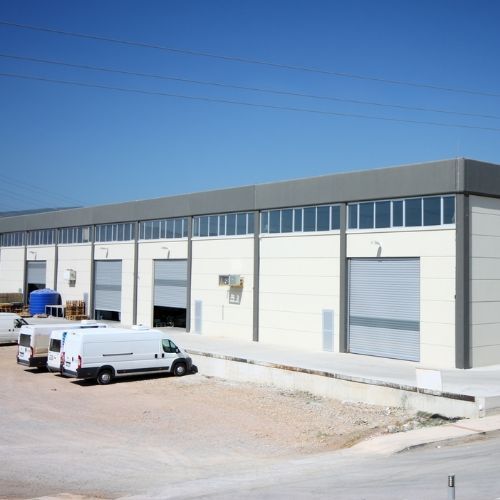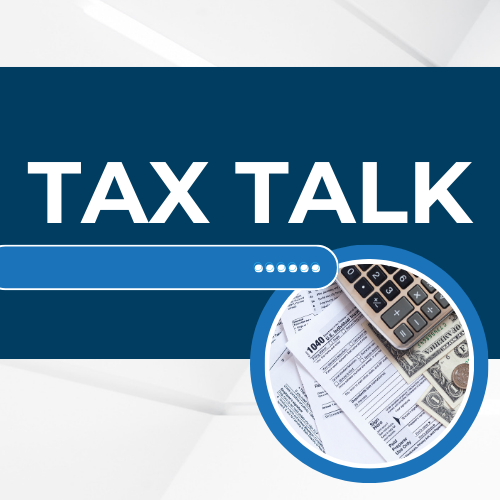Cost Segregation and Depreciation
How the cost segregation tax strategy can lower your tax bill.

Tax season can be a stressful time for many business owners, but there are strategies you can implement to reduce your tax liability legally. One such strategy that has gained popularity in recent years is cost segregation. This technique allows you to accelerate depreciation deductions for certain assets in your commercial property, ultimately lowering your tax bill. In this blog post, we'll explore what cost segregation is, how it works, and the potential benefits it can offer to your business.
What Is Cost Segregation?
Cost segregation is a tax planning strategy that allows business owners to reclassify certain components of a commercial property for tax purposes. Instead of depreciating the entire property over 27.5 or 39 years (as is common with residential and commercial real estate, respectively), cost segregation identifies and separates shorter-lived assets. These shorter-lived assets are typically categorized as personal property or land improvements, which can be depreciated over a significantly shorter time frame. By accelerating these depreciation deductions, you can reduce your taxable income and lower your overall tax liability.
How Does Cost Segregation Work?
To implement cost segregation, you need to engage a qualified cost segregation specialist, often an engineer or CPA, who will thoroughly analyze your property. Here's a step-by-step overview of how the process typically works:
- Property Inspection: The specialist will inspect your commercial property, examining blueprints, conducting interviews, and gathering relevant data to identify all depreciable assets.
- Asset Classification: After identifying the assets, the specialist classifies them into one of four categories: land, building, personal property, or land improvements.
- Depreciation Adjustment: Assets classified as personal property or land improvements are reclassified with shorter depreciation periods, such as 5, 7, or 15 years, rather than 27.5 or 39 years.
- Tax Savings: The adjusted depreciation periods result in higher deductions in the early years of property ownership, effectively reducing your taxable income and lowering your tax bill.
Benefits of Cost Segregation
- Cost segregation offers several key advantages for business owners looking to reduce their tax liability:
- Increased Cash Flow: Accelerating depreciation deductions allows you to keep more cash in your business in the short term, which can be reinvested or used for other purposes.
- Lower Tax Liability: By reducing your taxable income, you can significantly lower your tax bill, providing immediate financial relief.
- Improved Return on Investment: You can recoup a larger portion of your initial investment through accelerated depreciation deductions, leading to a better return on investment.
- Retroactive Benefits: Cost segregation can be applied retroactively, allowing you to catch up on missed depreciation deductions from prior years, potentially resulting in tax refunds.
- Property Valuation: Cost segregation can help increase the property's overall valuation, which can be beneficial when you decide to sell or refinance.
Is Cost Segregation Right for Your Business?
Cost segregation is a valuable tax strategy, but it may not be suitable for all businesses. Consider the following factors when determining if cost segregation is right for your business:
- Property Type: Cost segregation is most effective for commercial and industrial properties with a significant investment in shorter-lived assets.
- Tax Bracket: The higher your tax bracket, the greater the potential tax savings from cost segregation.
- Investment Horizon: Cost segregation may provide more significant benefits for long-term property ownership, as it allows for the spread of deductions over several years.
- Legal and Compliance: It is crucial to ensure that your cost segregation analysis is conducted in accordance with tax laws and regulations.
Cost segregation is a powerful tax strategy that can help you lower your tax bill and increase your cash flow. If you own a commercial property, especially one with substantial personal property or land improvement assets, it's worth considering this tax planning technique. However, always consult with a tax professional or cost segregation specialist to ensure that it's a suitable and legally compliant strategy for your business. When implemented correctly, cost segregation can be a valuable tool in your financial toolkit, allowing you to keep more of your hard-earned money and reinvest it into your business's growth and success.
Quick Links
Contact Information
Business Hours
- Mon - Fri
- -
- Sat - Sun
- Closed















